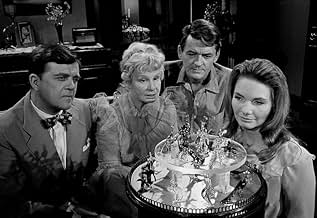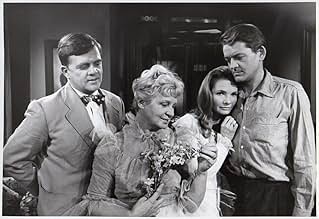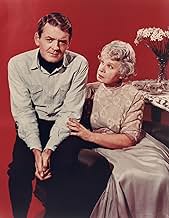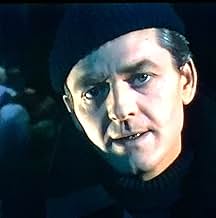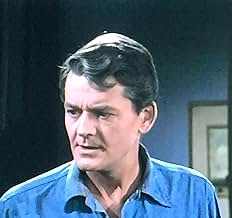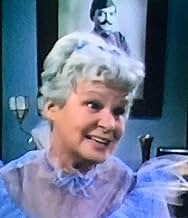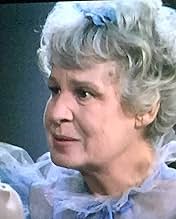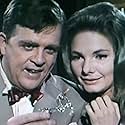Amanda Wingfield dominates her children with faded gentility and exaggerated tales of her Southern belle past.Amanda Wingfield dominates her children with faded gentility and exaggerated tales of her Southern belle past.Amanda Wingfield dominates her children with faded gentility and exaggerated tales of her Southern belle past.
- Nominated for 1 Primetime Emmy
- 1 nomination total
- Director
- Writer
- All cast & crew
- Production, box office & more at IMDbPro
Storyline
Did you know
- TriviaThe movie was lost for decades. In 2015, the unedited video footage was found and it was reconstructed using an audio recording that a viewer had captured during the broadcast and later uploaded to The Internet Archive. It aired on Turner Classic Movies 50 years from the day of the original telecast.
- ConnectionsVersion of The Glass Menagerie (1950)
Featured review
This is about the fourth version of this play I have seen and like all the movie versions I've seen, it lacks something compared to the Broadway version I saw. There is something more intimate in seeing it live...live as Tennessee Williams originally intended his play.
This is a made for television version starring Shirley Booth, as the annoying and super-talkative head of the Wingfield family. She is a woman who talks a lot but says very little most of the time...a woman who almost seems to talk just to hear herself. Her son, Tom (Hal Holbrook) is a guy with secrets* and he frequently spends his evenings out of the apartment. As for Laura (Barbara Loden), the daughter, she's painfully shy and hyper-aware of her game leg. Mrs. Wingfield has no husband (you can really understand why he disappeared long ago) and spends all her time haranguing her kids-- pestering Laura to date and Tom to help Laura find a boyfriend. As for the siblings, they mostly try to ignore mother and her very old fashioned and overly gentile Southern ways...much like the affectations Blanche Dubois put on in "A Streetcar Named Desire".
Ultimately, Tom is so annoyed and pestered by his mother that he finally agrees to bring home a 'gentleman caller' for his sister. Jim O'Connor (Pat Hingle) is one of Tom's only friends and he brings him home for dinner. Little does Jim know that Mrs. Wingfield is hoping to snare him for poor Laura.
Compared to other versions, this one is fair. Although it's in color (which is very nice), I felt like Shirley Booth delivered her lines too quickly. I also felt that Barbara Loden was too pretty to play Laura...an interesting problem! Otherwise, the play is the play...and each version pretty much follows the script to the letter. Worth seeing...but I would still say it's best to see this one live.
*When I first saw this play, I thought that the gay subtext was obvious with Tom. After all, he supposedly goes to the movies almost every night and doesn't come home until very, very late. This double-life as well as the author's sexual orientation as well as Mrs. Wingfield NOT pestering him to find a girlfriend all would seem to indicate he's gay. Oddly, most of the time I've read about the play this subtext is never mentioned.
This is a made for television version starring Shirley Booth, as the annoying and super-talkative head of the Wingfield family. She is a woman who talks a lot but says very little most of the time...a woman who almost seems to talk just to hear herself. Her son, Tom (Hal Holbrook) is a guy with secrets* and he frequently spends his evenings out of the apartment. As for Laura (Barbara Loden), the daughter, she's painfully shy and hyper-aware of her game leg. Mrs. Wingfield has no husband (you can really understand why he disappeared long ago) and spends all her time haranguing her kids-- pestering Laura to date and Tom to help Laura find a boyfriend. As for the siblings, they mostly try to ignore mother and her very old fashioned and overly gentile Southern ways...much like the affectations Blanche Dubois put on in "A Streetcar Named Desire".
Ultimately, Tom is so annoyed and pestered by his mother that he finally agrees to bring home a 'gentleman caller' for his sister. Jim O'Connor (Pat Hingle) is one of Tom's only friends and he brings him home for dinner. Little does Jim know that Mrs. Wingfield is hoping to snare him for poor Laura.
Compared to other versions, this one is fair. Although it's in color (which is very nice), I felt like Shirley Booth delivered her lines too quickly. I also felt that Barbara Loden was too pretty to play Laura...an interesting problem! Otherwise, the play is the play...and each version pretty much follows the script to the letter. Worth seeing...but I would still say it's best to see this one live.
*When I first saw this play, I thought that the gay subtext was obvious with Tom. After all, he supposedly goes to the movies almost every night and doesn't come home until very, very late. This double-life as well as the author's sexual orientation as well as Mrs. Wingfield NOT pestering him to find a girlfriend all would seem to indicate he's gay. Oddly, most of the time I've read about the play this subtext is never mentioned.
- planktonrules
- Dec 17, 2016
- Permalink
Details
- Release date
- Countries of origin
- Language
- Also known as
- CBS Playhouse: The Glass Menagerie
- Production companies
- See more company credits at IMDbPro
Contribute to this page
Suggest an edit or add missing content


